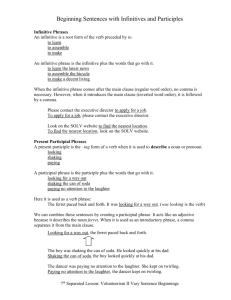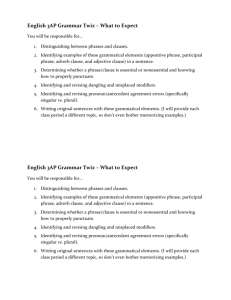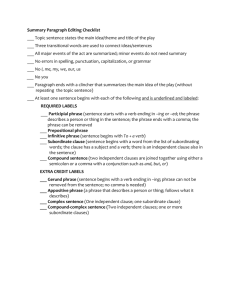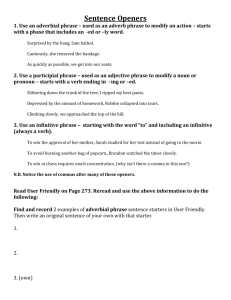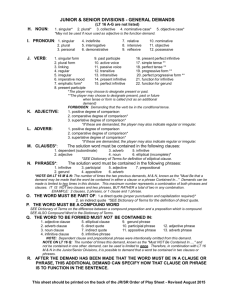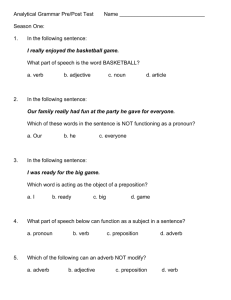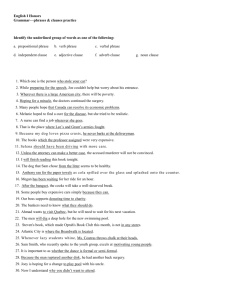Clauses and Phrases
advertisement
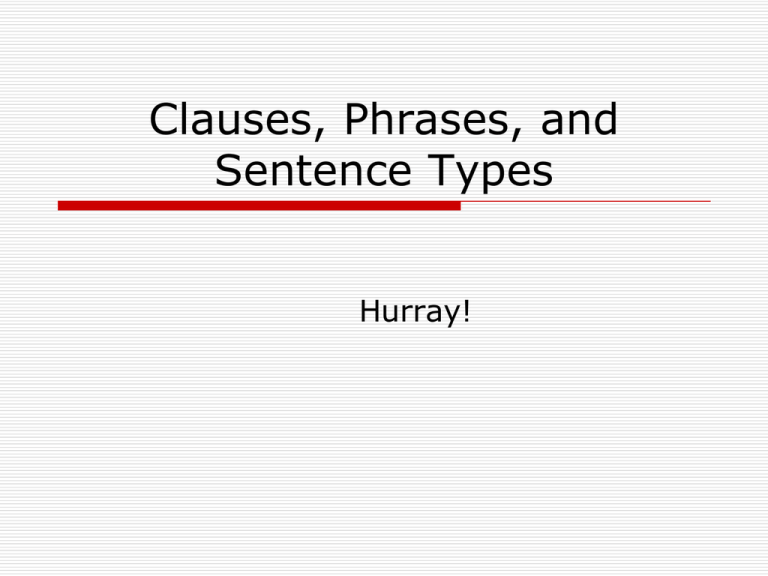
Clauses, Phrases, and Sentence Types Hurray! A clause A clause has a subject and a verb. An independent clause Can stand alone as a complete sentence. It has one subject and at least one verb. “Mary cried.” A dependent clause Needs to be attached to an independent clause. It cannot stand alone as a sentence because it includes a subordinate conjunction or a relative pronoun. “Because her parrot died.” Some subordinate conjunctions although, as, as if, as long as, as though, because, before, even though, if, in order that, once, since, so that, though, unless, until, when, whenever, where, whereas, wherever, whether, while. Relative pronouns who, what, whom, whoever, whomever, whose, which, whichever, whatever, that A simple sentence One independent clause “Mary cried.” A compound sentence Two independent clauses joined by a coordinating conjunction: (for, and, nor, but, or, yet, so) “The parrot died, and Mary cried.” A complex sentence One independent and one dependent clause, in any order. “Mary cried because her parrot died.” Write a simple sentence. Write a compound sentence. Write a complex sentence. Write a compound-complex sentence. Write one simple, one compound, and one complex sentence. Identify each. A phrase A group of words that does not include both a subject and a verb. A prepositional phrase A preposition and its object. “The dog jumped over the lazy cat.” “Over the lazy cat, the dog jumped.” Some prepositions about, above, across, after, against, along, among, around, at, before, behind, below, beneath, beside, between, by, down, during, except, for, from, in, in front of, inside, instead of, into, like, near, of, off, on, on top of, onto, out of, outside, over, past, since, through, to, toward, under, underneath, until, up, upon, with, within, without. A participial phrase Present or past participle that modifies a subject in an attached clause. “Swearing to buy her ice cream, the man begged his daughter to come down from the tree.” “Having sworn to buy her ice cream, the man coaxed his daughter down from the tree.” An infinitive phrase Infinitive verb “to ___” that modifies a subject in an attached clause or acts as a noun itself. “To stop his daughter’s crying, the man bought her ice cream.” “To go to the Olympics was Sean’s only dream.” Write one sentence that begins with a prepositional phrase. Write one sentence that begins with an infinitive phrase. Write one sentence that begins with a participial phrase. Write one sentence that includes a prepositional, participial, or infinitive phrase and identify it. Write one sentence that includes a prepositional, participial, or infinitive phrase and identify it.

